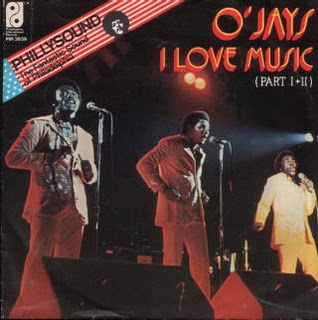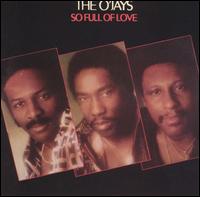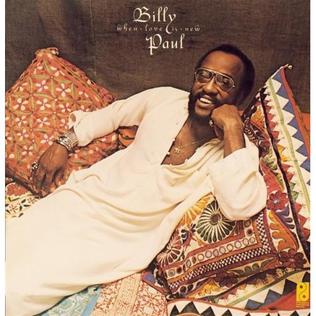
The O'Jays are an American R&B group from Canton, Ohio, formed in summer 1958 and originally consisting of Eddie Levert, Walter Lee Williams, William Powell, Bobby Massey, and Bill Isles. The O'Jays made their first chart appearance with the minor hit "Lonely Drifter" in 1963, but reached their greatest level of success once the producers Gamble & Huff signed them to their Philadelphia International label in 1972. With Gamble & Huff, the O'Jays emerged at the forefront of Philadelphia soul with Back Stabbers (1972), and topped the US Billboard Hot 100 the following year with "Love Train". Several other US R&B hits followed, and the O'Jays were inducted into the Vocal Group Hall of Fame in 2004, The Rock and Roll Hall of Fame in 2005, and the Rhythm and Blues Music Hall of Fame in 2013.
MFSB, officially standing for "Mother Father Sister Brother", was a pool of more than 30 studio musicians based at Philadelphia's Sigma Sound Studios. They worked closely with the production team of Gamble and Huff and producer/arranger Thom Bell, and backed up Harold Melvin & the Blue Notes, the O'Jays, the Stylistics, the Spinners, Wilson Pickett, and Billy Paul.
Thomas Randolph Bell was an American record producer, arranger, and songwriter known as one of the creators of Philadelphia soul in the 1970s. Hailed as one of the most prolific R&B songwriters and producers ever, Bell found success crafting songs for Delfonics, Stylistics, and Spinners. In June 2006, Bell was inducted into the Songwriters Hall of Fame. In 2016, Bell was inducted into the Musicians Hall of Fame and Museum.

The Intruders were an American soul music vocal group most popular in the 1960s and 1970s. As one of the first groups to have hit songs under the direction of Kenny Gamble and Leon Huff, they were a major influence on the development of Philadelphia soul.

Back Stabbers is the sixth studio album by Philadelphia soul group the O'Jays, released in August 1972 on Philadelphia International Records and the iTunes version was released and reissued under Epic Records via Legacy Recordings. Recording sessions for the album took place at Sigma Sound Studios in Philadelphia, Pennsylvania in 1972.

Paul Williams, known professionally as Billy Paul, was an American soul singer, known for his 1972 No. 1 single "Me and Mrs. Jones". His 1973 album and single War of the Gods blends his more conventional pop, soul, and funk styles with electronic and psychedelic influences.
Walter "Bunny" Sigler was an American R&B singer, songwriter, multi-instrumentalist and record producer who did extensive work with the team of Kenny Gamble and Leon Huff, and was instrumental in creating the "Philly Sound" in the early 1970s.

"For the Love of Money" is a soul, funk song that was written and composed by Kenneth Gamble, Leon Huff, and Anthony Jackson; it was recorded by Philadelphia soul group The O'Jays for the album Ship Ahoy. Produced by Gamble and Huff for Philadelphia International Records, "For the Love of Money" was issued as a single in late 1973, with "People Keep Tellin' Me" as its B-side. The single peaked at number three on the U.S. Billboard R&B chart, and at No. 9 on Billboard's Pop Singles chart in spring 1974. Though the album version of the song was over seven minutes long, it received substantial radio airplay. The song's title comes from a well-known Bible verse, 1 Timothy 6:10: "For the love of money is the root of all evil: which while some coveted after, they have erred from the faith, and pierced themselves through with many sorrows." The song was also used as the opening theme song for NBC’s The Apprentice as well as Donald Trump's WWE entrance music.

"You Are Everything" is a soul song written by Thom Bell and Linda Creed and originally recorded by the Philadelphia soul group The Stylistics.

"If You Don't Know Me by Now" is a song written by Kenny Gamble and Leon Huff, and recorded by the Philadelphia soul musical group Harold Melvin & the Blue Notes. It became their first hit after being released as a single in September 1972, topping the US R&B chart and peaking at number 3 on the US Billboard Hot 100.

"Love Train" is a hit single by the O'Jays, written by Kenny Gamble and Leon Huff. Released in 1972, it reached No. 1 on both the R&B Singles and the Billboard Hot 100 in February and March 1973 respectively, and No. 9 on the UK Singles Chart and was certified gold by the RIAA. It was the O'Jays' first and only number one record on the US pop chart. The song has been considered one of the first songs of disco music.

"I Love Music" is a song by American R&B group The O'Jays. It was written by production team Gamble and Huff. The song appeared on The O'Jays 1975 album, Family Reunion. The single reached number five on the US US Billboard Hot 100 and number one on the soul singles chart. In the UK, the song peaked at number 13 in the Top 40 singles charts in March 1976. The single spent eight weeks at number one on the US Disco File Top 20 chart.

So Full of Love is the twelfth album by the O'Jays, released in 1978 by Philadelphia International. The album contains the No. 1 R&B hit "Use ta Be My Girl", and was awarded RIAA platinum certification for sales of 1,000,000 copies.

Family Reunion is the ninth album by American R&B group The O'Jays, released on November 25, 1975 via Philadelphia International Records.

Survival is the eighth album by American R&B group The O'Jays, released on April 1975 via Philadelphia International Records label.

Identify Yourself is the thirteenth album by American R&B group the O'Jays, released on the Philadelphia International Records label in 1979. It was recorded at Sigma Sound Studios in Philadelphia, with four tracks produced by Kenny Gamble and Leon Huff, three by group members Eddie Levert and Walter Williams and one by the esteemed Philadelphia producer and composer Thom Bell.

War of the Gods is an album by soul singer Billy Paul. The album was produced by Kenny Gamble and Leon Huff and arranged by Bobby Martin and Lenny Pakula. Released in 1973, the album reached number 12 on the Billboard soul chart and number 110 on the pop chart. The single "Thanks for Saving My Life" was a top 40 hit, reaching number 37 on the pop chart and was a top-10 soul record reaching number 9. In 2012, Big Break Records remastered and reissued the album on CD with bonus tracks and new liner notes.

Live in Europe is an album by soul singer Billy Paul. The album was produced by Bobby Martin and arranged by Billy Paul and Caldwell McMillan. It was recorded at Hammersmith Odeon, London and Central Hall, Chatham, England in December 1973. Released in 1974, this album reached #10 on the Billboard Soul Album chart and #187 on the Billboard Pop album chart.

When Love is New is an album by soul singer Billy Paul. It was produced by Kenny Gamble & Leon Huff; arranged by Bobby Martin, Dexter Wansel, Norman Harris, and Jack Faith; and engineered by Joe Tarsia. Released in December 1975, it reached #139 on the Billboard Pop Album chart and #17 on the Soul chart. It includes the singles "Let's Make a Baby" which hit #83 on the Pop singles chart, #18 on the Soul chart, and #30 in the UK and "People Power" which reached #82 on the Soul chart and #14 on the U.S. Dance chart. The album was reissued on CD in 2010 by the U.K.'s Edsel Records. This was the final album where Paul was backed by MFSB, the house band of Philadelphia International Records (PIR).
"Put Your Hands Together" is a song recorded by The O'Jays song in 1973 for their album Ship Ahoy, which peaked at number 10 on the Billboard Hot 100 and number 2 on the Billboard Hot Soul Singles chart. The song reached #47 in Canada. It is their third song to reach the top 10 of the Hot 100 after "Back Stabbers" and "Love Train".
















